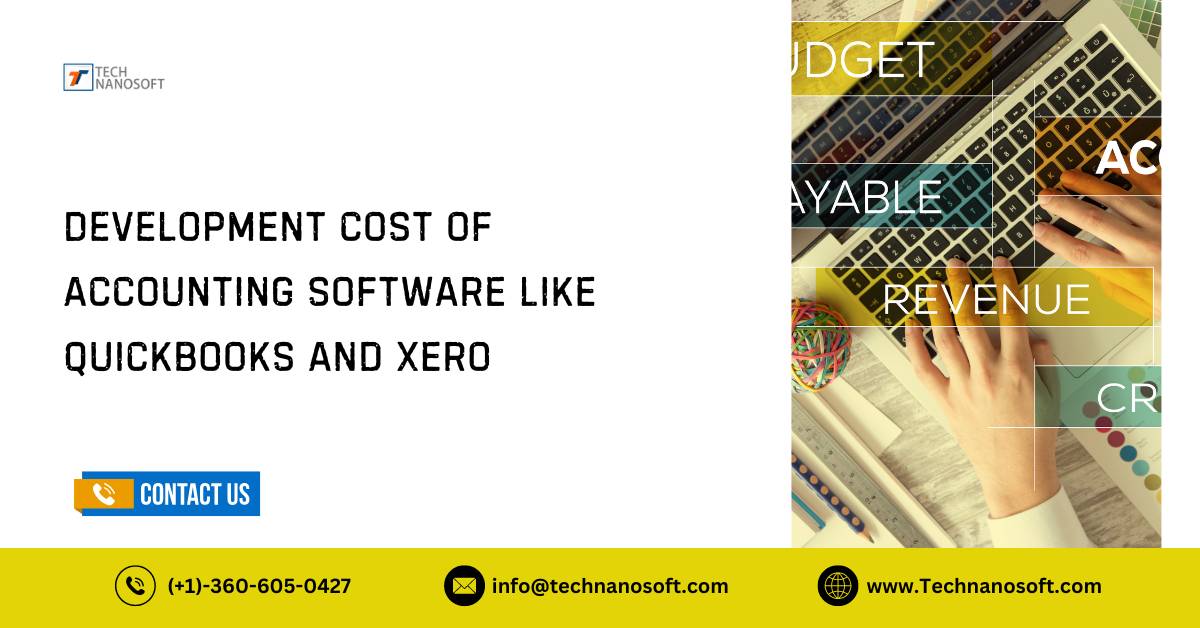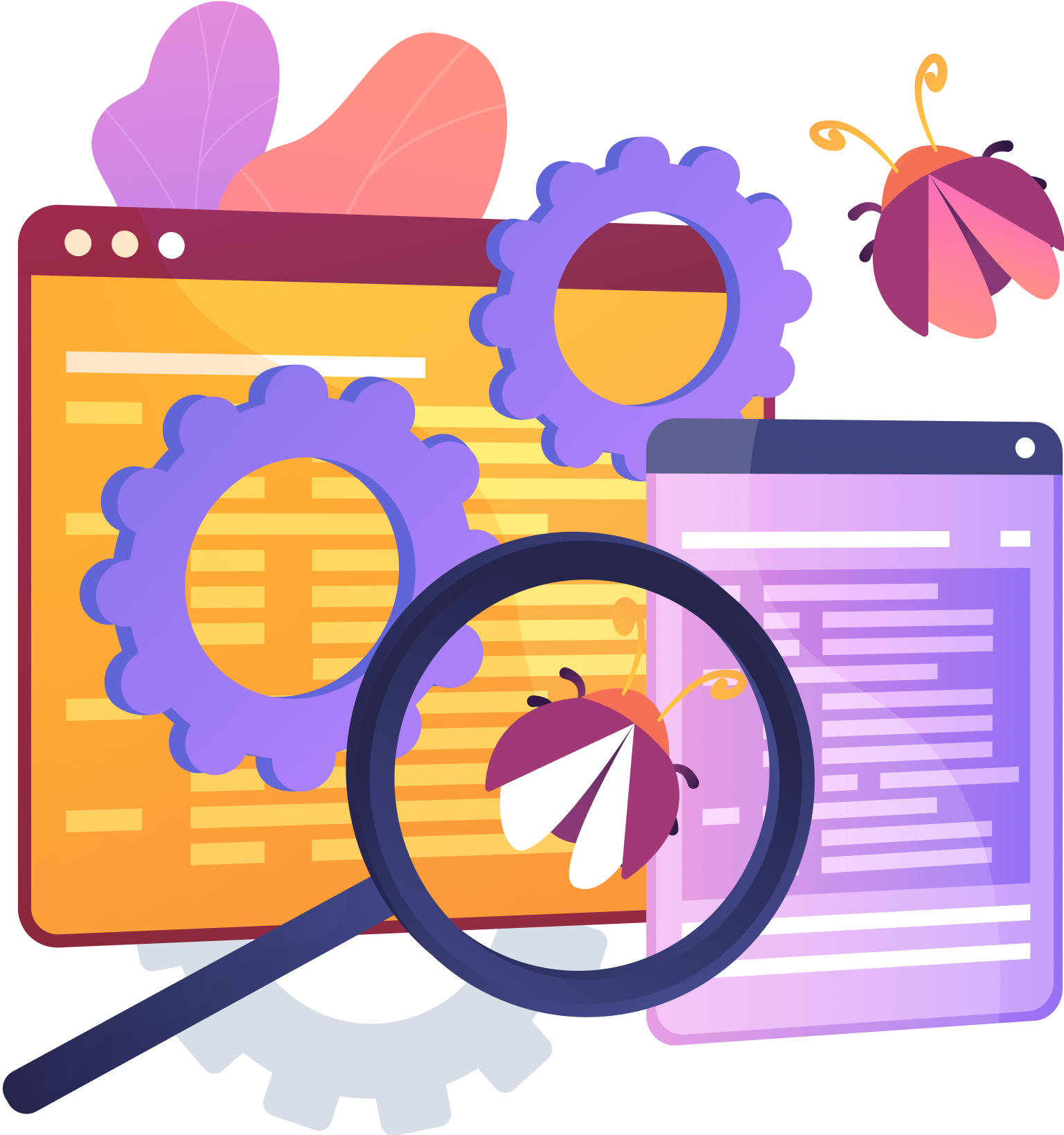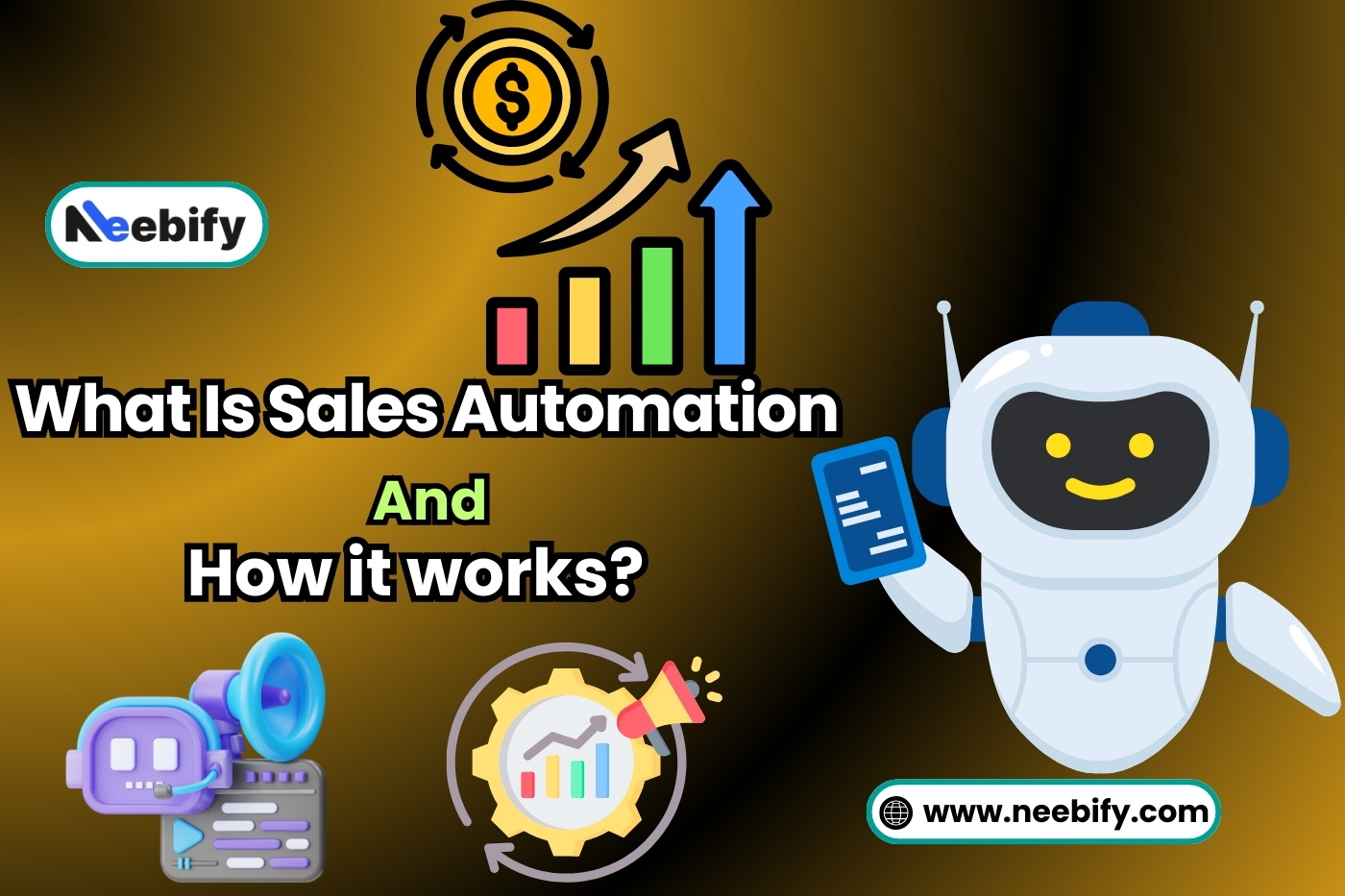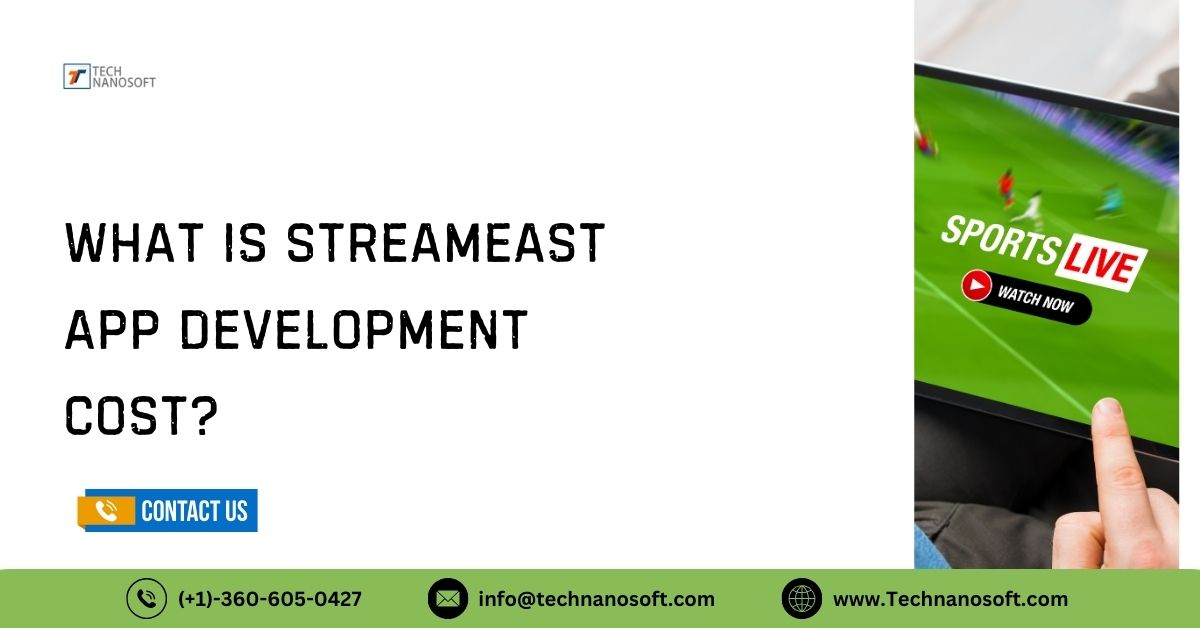Development Cost of Accounting Software Like QuickBook and Xero

More than ever, personal finance software needs to be dependable and effective in the ever-changing world of finance. Accounting management technologies have grown essential as more people and corporations look for sophisticated financial management solutions.
This article examines the complexities of these tools. It discusses their development costs, key features, and the importance of emerging technologies. It also explores topics such as cloud computing, user experience priorities, security precautions, and flexibility to meet corporate demands.
Accounting Management software
Accounting management tools are an advanced class of software that has been painstakingly designed to maximize and simplify financial operations for both people and enterprises. These tools are the foundation for managing many financial aspects like as payroll management, project monitoring, and bill payments, and they come with an extensive feature set.
They enable customers to effectively organize, analyze, and optimize financial data by offering a consolidated platform. As a result, there is an increased ability to make well-informed decisions, enhanced financial correctness, and a streamlined workflow, all of which greatly increase the effectiveness of financial management as a whole. To put it simply, these are invaluable tools for navigating the complex world of contemporary finance.
Development Costs of Accounting Management Tools like xero and QuickBooks
Complexity
There is a close relationship between complexity and the development costs of accounting management technologies. Advanced features such as payroll, inventory management, and integrations cost more than basic accounting features. The total cost of development is mostly determined by required features.
Team
The development team has an impact on expenses. Pay is higher for seasoned developers and qualified financial specialists. Their knowledge is essential for developing a solid accounting management system that satisfies user requirements and industry standards.
Technology
A significant cost component is the infrastructure of data, which includes cloud services, security precautions, and data scalability. A reliable and safe technology ensures the product works well, your data is protected, and it can adapt to your needs.
schedule
An important factor in figuring out costs is the development schedule. Expenses rise with hurried development as opposed to a measured, staged strategy. Sufficient time for comprehensive testing, troubleshooting, and optimization, guaranteeing a more economical and dependable final product.
Estimates
Calculating development expenses is a useful reference point. A basic Accounting Management System (AMS) could cost between $25,000 and $50,000, whereas a sophisticated AMS with cutting-edge functionality might cost more than $100,000. The precise expenses could differ depending on the demands, method of development, and unanticipated difficulties.
Alternatives
It's important to take into account options like Software as a Service (SaaS) platforms and open-source AMS. Although open-source solutions are less expensive, customisation requires technical know-how. Pay-as-you-go subscription platforms known as SaaS platforms offer pre-existing AMS solutions without requiring significant development, thereby saving money up front. Weighing the benefits and drawbacks of each choice in light of your particular requirements and financial limitations is essential.
17 key Characteristics Set Accounting Software Like Xero and QuickBooks
Pay Bills
One essential component of accounting software such as xero and QuickBooks is the ability to streamline bill payments. By automating payments, guaranteeing prompt settlements, and avoiding mistakes that can jeopardize financial stability, this feature improves cash flow management.
Claim Expenses
This tool makes tracking and reimbursement of expenses easier by enabling users to quickly record, organize, and submit their expenses. It offers a faster procedure for controlling corporate expenses and guarantees accuracy in financial reporting.
Bank Linkages
This tool gives you updates on transactions in real time and integrates seamlessly with bank accounts. Businesses may make well-informed decisions based on current information thanks to its enhancement of financial visibility, reduction of manual data entry errors, and facilitation of efficient reconciliation.
Accept Payments
This feature facilitates simple payment processing for consumers and clients while improving cash flow through the provision of different payment options. It guarantees that businesses receive payments on time, enhances consumer happiness, and facilitates a smooth transaction experience.
Track Projects
With this tool, companies can keep an eye on projects and manage them to make sure they're profitable and efficient. By offering information on project budgets, schedules, and resource allocation, it helps decision-makers make well-informed choices and maximizes project results.
Payroll with Gusto
This functionality automates payroll procedures, including tax deductions and salary computations, thereby streamlining payroll management through connectivity with providers like Gusto. It guarantees compliance, lessens administrative hassles, and improves employee compensation accuracy.
Bank Reconciliation
This function reduces inconsistencies and inaccuracies in financial records by ensuring correctness by comparing transactions with bank statements. It simplifies the reconciliation procedure and offers a transparent picture of the company's financial situation.
Capture Data
With the help of this tool, users may quickly gather and arrange financial data in preparation for analysis. It guarantees that reliable data is available for financial reporting and decision-making, speeds up data entry, and lowers manual error rates.
Reporting
This tool generates detailed financial reports and offers insightful information about a business's financial status. It comes with programmable reports to help with forecasting, budgeting, and strategic planning.
Inventory
This function maximizes stock management by controlling inventory levels and expediting order processing. It reduces the expenses associated with excess inventory, avoids stockouts, and offers real-time information on product availability and inventory turnover.
Online Invoicing
By streamlining invoicing procedures with online tools, this feature quickens payment cycles. By enabling digital invoice creation, sending, and tracking, businesses may enhance cash flow and shorten the time it takes to receive payments.
Multi-Currency Accounting
This feature supports many currencies and makes international transactions easier for companies who operate in a variety of markets. It guarantees correct documentation of international financial transactions, streamlines cross-border financial reporting, and automates currency changes.
Buy Orders
This feature improves control over spending by streamlining procurement through effective buy order administration. It increases overall procurement efficiency, tracks order progress, and automates the buy order process.
Sales Tax
This function guarantees that businesses comply with tax requirements by automatically calculating and handling sales tax for compliance. By reducing the possibility of mistakes in tax computations, it makes accurate financial reporting and tax compliance easier.
Analytics
This feature enables firms to make data-driven decisions by providing them with useful information via sophisticated analytics tools. With its tools for trend analysis, performance review, and forecasting, it improves corporate intelligence and strategic planning.
Accounting Dashboard
This feature gives consumers a visual picture of the financial health of the company by allowing them to monitor important financial parameters on a consolidated dashboard. It improves accessibility and speeds up decision-making based on up-to-date information.
Manage Fixed Assets
This capability guarantees correct asset assessment and depreciation by monitoring and managing fixed assets for accurate financial reporting. It offers information on how assets are used, when maintenance should be done, and how well assets are performing overall.
ALSO READ- What are QuickBooks Update Error 1603 and Error Fix Techniques?
Emerging Technologies' Role
Artificial Intelligence (AI)
AI improves automation by allowing accounting software to do predictive analysis and make intelligent decisions. It increases overall process efficiency in finance by automating repetitive procedures, boosting data accuracy, and offering insightful informa
Machine Learning (ML)
Over time, ML algorithms in accounting software get better, providing individualized insights and automating monotonous work. They improve data analysis, spot trends, and adjust to changing financial conditions, all of which help to make financial management more precise and effective.
Blockchain Technology
Blockchain guarantees tamper-resistant, transparent, and safe transactions in accounting procedures. It increases confidence in financial transactions, lowers the possibility of fraud, and guarantees the accuracy of financial data by offering an unchangeable ledger.
The Impact of Cloud Technology
Products such as xero and QuickBooks serve as prime examples of how cloud technology has revolutionized accounting software. Users of these cloud-based services can access financial data at any time and from any location thanks to their unmatched accessibility. This improves cooperation while also guaranteeing strong data security, which is important in the current digital environment.
Moreover, there is less dependence on physical infrastructure, which makes financial management easier to use and more adaptable. Essentially, cloud computing redefines the way users interact with accounting software by placing a greater emphasis on adaptability, security, and convenience.
How User Experience Is Given Priority By Makers of Accounting Software
Prosperous accounting software providers prioritize user experience, stressing usability and accessibility. They incorporate user-friendly features, create user-friendly interfaces, and apply responsive design concepts. This dedication to providing a great user experience guarantees that users of all skill levels may easily navigate the software.
Developers that put usability first improve the overall effectiveness of financial management procedures and provide an environment that is easy to use and appealing to a wide range of users.
Security Measures In Accounting Software like Xero and QuickBooks
xero and QuickBooks and other top accounting software prioritize the security of financial data by implementing cutting edge security features. xero and QuickBooks protects sensitive data with cutting-edge encryption, robust authentication procedures, and ongoing monitoring. Users are reassured by this dedication to data security that their financial information is safe from any threats and unlawful access.
Enhanced Security Upon Login
You Choose Who Can See What
In accounting software, strong user rights and access controls are essential. With the use of this function, managers can specify who inside the business is authorized to access particular data, protecting confidential information.
Your Private Information Is Confidential
Personal information is protected by strong encryption algorithms that create an unbreakable barrier. This reinforces user confidence in the security of the system by guaranteeing that sensitive data stays private and is protected from unwanted access or security breaches.
Your Data Is Safely Stored Online
Accounting software uses cloud-based storage to guarantee the integrity and safety of data. This feature protects financial data with strong security measures, giving users peace of mind that their data is dependably accessible when needed and preserved safely.
Adaptability To Unique Business Requirements
The capacity of accounting management solutions to adapt remarkably well to a wide range of business needs is their strength. With a wide range of adjustable features, these instruments are made to serve companies in all sizes and sectors. Because of its scalability, firms can customize the program to match their unique needs, resulting in a flexible and effective financial management system.
Improvements In Accounting And Financial Management
One major step toward better financial management for firms is the adoption of best personal finance software. These solutions help by improving overall accuracy in financial operations, automating repetitive tasks, and providing real-time insights. With the aid of these technologies, companies may successfully meet their financial goals, allocate resources optimally, and make well-informed decisions.
AI and Automation In Accounting And Financial Management
Artificial intelligence (AI) and automation are revolutionizing the field of accounting and financial management. By offering predictive analytics and automating jobs like data input, these technologies transform operations. Enhanced overall efficiency, decreased errors, and optimized operations are the end results. Companies that use automation and artificial intelligence (AI) in their financial management get a competitive edge and can quickly adjust to the changing needs of the financial industry.
Conclusion
the world of personal finance software is evolving rapidly, with accounting management tools at the forefront of this transformation. As businesses seek to optimize their financial processes, the integration of advanced features, emerging technologies, and robust security measures is crucial.
By understanding the development costs, essential features, and the impact of technologies like AI and blockchain, businesses can make informed decisions when choosing the best personal finance software for their unique needs. The future of financial management is undoubtedly exciting, and embracing these innovations will undoubtedly lead to better financial outcomes for businesses and individuals alike.
FAQs on And Accounting Management Software Like QuickBooks And Xero
Q.1. What is software for accounting and financial management?
A- digital solution called accounting and financial management software is made to make firm financial procedures easier. It supports effective financial management by assisting with the administration of duties including billing, bookkeeping, and financial reporting.
Q.2. What are the advantages of accounting software for businesses?
A- Time savings, increased accuracy, and real-time financial insights are just a few advantages of accounting software. It improves a company's overall financial efficiency by automating operations and lowering errors.
Q.3. What characteristics ought to accounting software have?
A- Financial reporting, expense monitoring, xero invoicing, and scalability are all crucial characteristics. Seek features, integrations, and user-friendly interfaces that are customized to your company's requirements.
Q.4. Is software for financial management appropriate for small businesses?
A- A lot of accounting software options do indeed serve small firms. They provide trimmed-down versions that nevertheless have the necessary capabilities, making them inexpensive and simple to use for smaller businesses.
Q.5. How safe is software for financial management?
A- Security is given first priority in reputable financial management software, which includes features like encryption and access controls. Select software only from reputable companies with a track record of protecting customer data.
Q.6. Can accounting software adjust to meet the needs of a particular industry?
A- A lot of accounting software systems can be tailored to meet the needs of a particular industry. Seek for software that is flexible and can be adjusted to meet the particular requirements of your company or sector.









